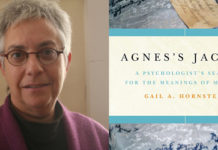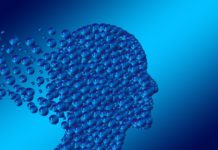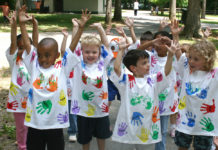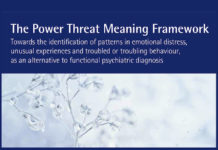First-Person Accounts of Madness and Global Mental Health: An Interview with Dr. Gail Hornstein
Dr. Gail Hornstein, author of Agnes’s Jacket: A Psychologist’s Search for the Meanings of Madness, discusses the importance of personal narratives and service-user activism in the context of the global mental health movement.
Can a Conceptual Competence Curriculum Bring Humility to Psychiatry?
Training for conceptual competence in psychiatry provides a new way forward to address theoretical and philosophical issues in mental health research and practice.
Mirror, Mirror: Study Challenges Notion of a Narcissism Epidemic Among Youth
One study indicates that pointed fingers incriminating youth for narcissism may be pointed in the wrong direction.
What Caused the American Child Bipolar Epidemic?
-Psychiatrists analyze why US bipolar diagnoses in children and adolescents increased 40 times over in less than 10 years.
Neoliberalism Drives Increase in Perfectionism Among College Students
Meta-analytic study detects upsurge in patterns of perfectionism in young adults and explores how neoliberalism contributes to this trend.
“The Pharmaceutical Industry’s Role in U.S. Medical Education”
“Pharmaceutical industry influence can harm the social and moral character of medical students. In medicine, the traditional virtues of benevolence, compassion, integrity, respectfulness, honesty...
Antipsychotics Prescribed Off-Label for Challenging Behaviors
Antipsychotics are being prescribed to people who may have challenging behaviors but no mental disorder, according to new research published in this month’s issue of BMJ. “Excessive use of psychotropic drugs has individual and systemic implications,” the researchers write. “Antipsychotics, in particular, are associated with several adverse side effects that can impair quality of life and lead to deleterious health outcomes.”
Many Patient Advocacy Organizations Are Funded By Industry
New research investigates the financial conflicts of interest (FCOI) of patient advocacy organizations (PAOs) in the United States.
“The FDA Is Basically Approving Everything. Here’s The Data To Prove It”
Writing for Forbes, Matthew Herper documents the FDA’s increasing drug approval rates. “In 2008, BioMedTracker says the FDA approved 20 new molecular entities (NMEs) and rejected 20, for an approval rate of 50%.” So far this year, he writes, “the FDA approval rate is more like 96%.”
Problem Behaviors are Medicalized in White Children and Criminalized in Black Children
Race often determines whether school punishment or therapy and drugs will be used to address children’s problem behaviors.
Call for Client Inclusion in Recovery-Focused Psychiatric Diagnosis
A new review, published in The Lancet Psychiatry, examines the perspectives of clinicians and service-users on psychiatric diagnosis.
“’Disease Awareness’—How Big Pharma Preps You to Buy Drugs You Probably Don’t Need”
The latest from Martha Rosenberg: “Pharma companies love disease awareness advertising because, unlike direct-to-consumer (DTC) advertising, risks and warnings of possible drug treatments do...
My Daughter’s Story
I am now haunted by guilt that my daughter never really had a chance for anything like a normal life, because of the choices that were made for her. Choices made with the 'best' medical advice of the day, which I had never quite accepted as correct, but in the end largely complied with for lack of any clear alternative.
Neuroscience-based Treatment Program Proposed for Adolescent Depression
A study published in Frontiers in Human Neuroscience proposes a new model for the treatment of adolescents diagnosed with major depressive disorder (MDD).
Digital Media Use Linked to Increase in ADHD Symptoms
Increased frequency of digital media use can increase symptoms of ADHD among adolescents, study finds.
“Tasty and Easy to Take, A New ADHD Drug Alarms Some Psychiatrists”
For STAT, Meghana Kashavan reports on a new, candy-flavored, chewable, fruity, amphetamine drug on the market for children diagnosed with ADHD. “It’s a move...
The Power Threat Meaning Framework One Year On
The team that developed the Power Threat Meaning framework as a diagnostic alternative reflects on the response to the framework after one year.
“Emotional Child Abuse May be Just as Bad as Physical Harm”
Reuters covers a new study in JAMA Psychiatry that suggests that children exposed to physical abuse and emotional abuse suffer from similar psychological and behavioral problems. “Even though doctors and parents often believe physical or sexual abuse is more harmful than emotional mistreatment or neglect, the study found children suffered similar problems regardless of the type of maltreatment endured.”
“U.S. Doctors Advised to Screen Child Patients for Signs of Hunger”
The American Academy of Pediatrics came out with new recommendations that suggest doctors screen all of their child patients for hunger. About 16 million children in the US live in food scarcity and poverty that can lead to physical health issues as well as behavioral issues, which can then be misdiagnosed.
Researcher Urges Caution When Applying Genetics to Psychiatry
In a review editorial for the journal Psychotherapy and Psychosomatics, neurobiology researcher Steven Dubovsky from the University at Buffalo argues against the adoption of...
Rates of ADHD Diagnosis and Prescription of Stimulants Continue to Rise
Two new articles find that rates of ADHD diagnosis and stimulant prescription continue to rise all over the world.
Campaign Against Drugging of Foster Children
-The US National Center for Youth Law has launched an "action campaign" to persuade government officials to reduce the psychiatric drugging of children in foster care.
“Direct-to-Consumer Advertising — Selling Drugs or Diseases?”
With the American Medical Association (AMA) declaring its opposition to direct-to-consumer (DTC) drug advertising, Martha Rosenberg asks, did DTC increase the number of people who have "diseases"?
From Stoned to “Schizophrenic”: My Mental Healthcare Journey
During a period of self-doubt, I chose to see a psychiatrist because I was engulfed in negative thoughts and couldn't find a direction in life. The slightest joys came only when I was high. Though my weed addiction was likely causing all of my symptoms, my psychiatrist’s response was to prescribe antipsychotics.
“CDC Warns that Americans May be Overmedicating Youngest Children with ADHD”
The Centers for Disease Control and Prevention (CDC) released new data indicating that as many as 75% of young children who are diagnosed with...























